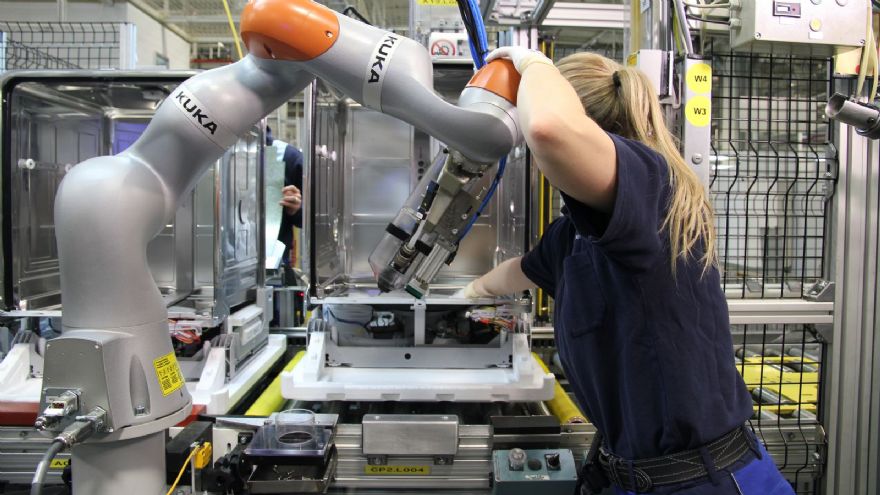
The
International Federation of Robotics (IFR) says that by 2022, an operational stock of almost 4 million industrial robots is expected to be working in factories world-wide, adding that these robots will play a vital role in automating production to speed up the post-Coronavirus economy.
The IFR also says that robots are driving demand for skilled workers, and adds that educational systems must effectively adjust to this demand.
Milton Guerry, president of the IFR, said: “Governments and companies around the world now need to focus on providing the skills necessary to work with robots and intelligent automation systems if they are to take maximum advantage of the opportunities that these technologies offer.
The post-Coronavirus recovery will further accelerate the deployment of robotics, so policies and strategies that help workforces make the transition to a more automated economy are important.”
Saadia Zahidi, speaking in her role as head of education, gender and employment initiatives at the World Economic Forum, said: “Very few countries are taking the ‘bull by the horns’ when it comes to adapting education systems for the age of automation.
“Those that are have long had a clear focus on human capital development. Countries in northern Europe, as well as Singapore, are probably running some of the most useful experiments for the future world of work.”
According to the “automation readiness index” published by the Economist Intelligence Unit (EIU), only four countries have already established mature education policies to deal with the challenges of an automated economy. South Korea is the category leader, followed by Estonia, Singapore and Germany.
Countries like Japan, the USA and France are regarded as ‘developed’, while China is ranked as ‘emerging’.
IFR general secretary Susanne Bieller said: “Re-training the existing workforce is only a short-term measure. We must start way earlier, with curricula for schools and undergraduate education matching the needs of industry regarding the workforce of the future.
“Demand for technical and digital skills is increasing, but equally important are cognitive skills like problem-solving and critical thinking. Economies must embrace automation and build the skills required to profit, otherwise they will be at a competitive disadvantage.”
The topic ‘Next Generation Workforce — Upskilling for Robotics’ will be discussed by the IFR Executive Round Table on 9 December at
Automatica — a leading trade fair for smart automation and robotics taking place in Munich.